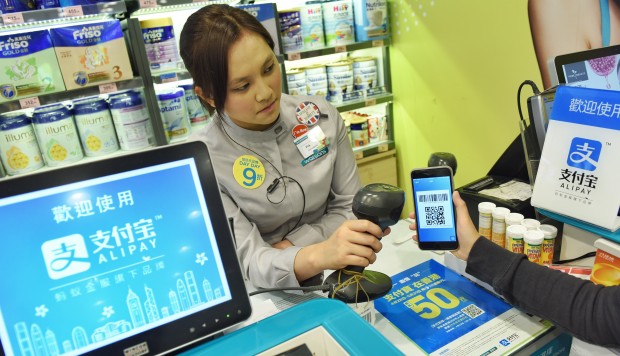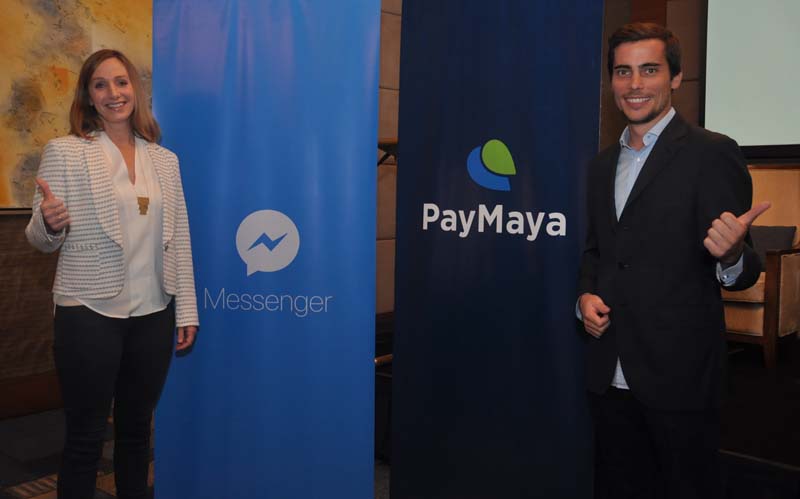It’s Fintech Friday and we have a global look at fintech news and payments technology developments around the globe. ACI Worldwide/Ovum research says 66% of banks consider immediate payments a key revenue driver. According to Cardtronics, consumers  are adding new payments options but 91% still used cash within the last six months. A Worldpay survey shows nearly half of consumers are okay with IoT payments but 62% want to approve purchases in advance.
are adding new payments options but 91% still used cash within the last six months. A Worldpay survey shows nearly half of consumers are okay with IoT payments but 62% want to approve purchases in advance.
Regtech proved to be the hottest trend in fintech in the US while AI and open banking proved popular as well. PayPal CEO Dan Schulman hopes his company can reach out to the global underserved consumers who spend up to 10% of their disposable income on interest and bank fees. Billionaires Li Ka-shing and Jack Ma will partner to expand mobile payment services in Hong Kong.
 RBC is testing blockchain technology to generate faster processing of US-Canada cross-border payments. Pymnts.com profiles biometrics payments use by leading banks including Bank of America and ANZ. In the Philippines, PayMa and Facebook launched a new mobile payments app.
RBC is testing blockchain technology to generate faster processing of US-Canada cross-border payments. Pymnts.com profiles biometrics payments use by leading banks including Bank of America and ANZ. In the Philippines, PayMa and Facebook launched a new mobile payments app.
Insurtech Lemonade launched its new Zero Everything product – a no-deductible insurance plan. Watch for new “push payments” efforts to digitize the $22 trillion annual paper check industry according to senior industry executives. The recent Equifax data breach disaster reopens arguments against monetizing financial data. Fortune profiled some of the ways China fintech is leapfrogging ahead of US technology.
Banks look to immediate payments to drive revenue
 Immediate payments are a key revenue driver for 66% of banks in markets with IP schemes, according to new benchmark data from processor ACI Worldwide and UK consultancy and Banking Technology’s sister company Ovum. In addition to viewing immediate payments as a key revenue driver, 61% of banks surveyed believe that immediate payments will enhance their service and proposition to customers, while 60% expect them to reduce costs, according to the study. Via bankingtech.com
Immediate payments are a key revenue driver for 66% of banks in markets with IP schemes, according to new benchmark data from processor ACI Worldwide and UK consultancy and Banking Technology’s sister company Ovum. In addition to viewing immediate payments as a key revenue driver, 61% of banks surveyed believe that immediate payments will enhance their service and proposition to customers, while 60% expect them to reduce costs, according to the study. Via bankingtech.com
Consumers Embrace Choice When It Comes to Payment
 According to the Cardtronics Health of Cash survey, consumers are adding digital payment options but they haven’t given up cash — they just want a choice. Specifically, the survey found that the percent of the population using each payment type for either purchases or person-to-person (P2P) payments in the last six months broke out as: 91% used cash; 725 used debit card; 68% used credit card; 51% used digital (like mobile wallet, P2P apps, and retailer apps). Via csnews.com
According to the Cardtronics Health of Cash survey, consumers are adding digital payment options but they haven’t given up cash — they just want a choice. Specifically, the survey found that the percent of the population using each payment type for either purchases or person-to-person (P2P) payments in the last six months broke out as: 91% used cash; 725 used debit card; 68% used credit card; 51% used digital (like mobile wallet, P2P apps, and retailer apps). Via csnews.com
Study: Consumers OK with IoT payments, but want control over purchase
 Nearly half of US consumers in a Worldpay survey said they would feel comfortable with a connected device, such as a refrigerator, ordering items on their behalf. However, some 62% of respondents would want to approve all purchases beforehand and 78% would prefer to be notified before the order is placed. Via mobilepaymentstoday.com
Nearly half of US consumers in a Worldpay survey said they would feel comfortable with a connected device, such as a refrigerator, ordering items on their behalf. However, some 62% of respondents would want to approve all purchases beforehand and 78% would prefer to be notified before the order is placed. Via mobilepaymentstoday.com
What’s hot and what’s not in US fintech
 Here are the rules – we shouted out a list of 20 fintech trends and our cocktail-fuelled audience shouted their opinion on whether the trend is hot or not*. The result was a not-quite-scientific analysis of what is trending in US fintech. The hottest? Regtech. I was surprised to hear the audience react so strongly to this trend, since the US is lagging in regtech start-ups and adoption. Via bankingtech.com
Here are the rules – we shouted out a list of 20 fintech trends and our cocktail-fuelled audience shouted their opinion on whether the trend is hot or not*. The result was a not-quite-scientific analysis of what is trending in US fintech. The hottest? Regtech. I was surprised to hear the audience react so strongly to this trend, since the US is lagging in regtech start-ups and adoption. Via bankingtech.com
PayPal CEO says ‘It’s expensive to be poor’

Tycoons Li Ka-shing, Jack Ma team up to expand mobile payments in Hong Kong

Exclusive: Royal Bank of Canada using blockchain for US-Canada payments
The bank developed the system over the past six months at an RBC blockchain technology center in Toronto, deploying software developed by a cross-industry open-source blockchain consortium known as Hyperledger. “We wanted to set it up as a shadow ledger so that we can demonstrate our leadership in exploiting that technology while at the same time recognizing that the technology is still early in its adoption phase,” Wildberger said. Via reuters.com
Bank of America Banks on Biometrics
 According to Hari Gopalkrishnan, managing director of consumer-facing platforms and technology for Bank of America (BoA), while banking security features obviously need to be secure, if consumers find an authentication method to be cumbersome, intrusive or difficult to set up and interact with frequently, they may choose not to use it at all. Gopalkrishnan explained that passing on biometric authentication could leave consumers’ digital identities more easily exposed to fraudsters, hackers and other bad actors, potentially resulting in a data breach. Via pymnts.com
According to Hari Gopalkrishnan, managing director of consumer-facing platforms and technology for Bank of America (BoA), while banking security features obviously need to be secure, if consumers find an authentication method to be cumbersome, intrusive or difficult to set up and interact with frequently, they may choose not to use it at all. Gopalkrishnan explained that passing on biometric authentication could leave consumers’ digital identities more easily exposed to fraudsters, hackers and other bad actors, potentially resulting in a data breach. Via pymnts.com
PayMaya and Facebook launch payment tools in Messenger
 PayMaya is a leader in transforming the mobile phone into a virtual wallet and is continually looking for ways to expand its services. PayMaya recognizes that Facebook Messenger’s community offers a unique opportunity to make PayMaya services available and accessible to even more users. “Our goal is to amplify the reach and impact of providers like PayMaya by enabling tools that allow them to connect people with the services and friends they care about.” Via philstar.com
PayMaya is a leader in transforming the mobile phone into a virtual wallet and is continually looking for ways to expand its services. PayMaya recognizes that Facebook Messenger’s community offers a unique opportunity to make PayMaya services available and accessible to even more users. “Our goal is to amplify the reach and impact of providers like PayMaya by enabling tools that allow them to connect people with the services and friends they care about.” Via philstar.com
Lemonade Marks One Year Since Launch With the World’s First Zero Deductible
 The launch of Lemonade’s Zero Everything marks the company’s first anniversary. Zero Everything is the closest thing to truly ‘undoing’ a loss. New users can opt for the Zero Everything no-deductible plan when getting a policy, simply by choosing the Zero Everything option before purchasing a policy. Via prnewswire.com
The launch of Lemonade’s Zero Everything marks the company’s first anniversary. Zero Everything is the closest thing to truly ‘undoing’ a loss. New users can opt for the Zero Everything no-deductible plan when getting a policy, simply by choosing the Zero Everything option before purchasing a policy. Via prnewswire.com
Ingo Money CEO on Push Payments for Banking
 Past interviews have focused on new ways to digitize the $22 trillion annual paper check industry using push payments. The premise of push payments or peer-to-peer (P2P) payments is getting paid “using a piece of plastic that is in your pocket or in your wallet [or on a device], the same one that you spend money with,” explained Edwards. The duo explored both the opportunities and challenges ahead for banks as they navigate the changing needs of their enterprise clients’ treasury operations. Via pymnts.com
Past interviews have focused on new ways to digitize the $22 trillion annual paper check industry using push payments. The premise of push payments or peer-to-peer (P2P) payments is getting paid “using a piece of plastic that is in your pocket or in your wallet [or on a device], the same one that you spend money with,” explained Edwards. The duo explored both the opportunities and challenges ahead for banks as they navigate the changing needs of their enterprise clients’ treasury operations. Via pymnts.com
Monetizing payment data has come back to haunt financial institutions
 A hot topic in the financial services industry a few years back was monetizing anonymized consumer payment data. Now that very same data appears to be a costly liability that needs to be secured given the rise in fraud. Worse yet, financial fraud data exposure is becoming a routine fact of life that has eroded consumer confidence in banking and payment systems. Via paymentssource.com
A hot topic in the financial services industry a few years back was monetizing anonymized consumer payment data. Now that very same data appears to be a costly liability that needs to be secured given the rise in fraud. Worse yet, financial fraud data exposure is becoming a routine fact of life that has eroded consumer confidence in banking and payment systems. Via paymentssource.com
Apple Tries to Recover in China; Walmart Talks E-Commerce
 On the subject of China innovation, it was as if The Economist was eavesdropping on our dinner last Thursday night, which, given its deadlines, I know wasn’t the case. We devoted a panel to explaining how the Chinese have leapfrogged the West in certain areas, including wireless payments. This article gives great details on the same subject. And Berkeley economist Laura Tyson eloquently cautioned about allowing China to pursue innovation with an unfair advantage. This “leader” intelligently makes the same case. Via fortune.com
On the subject of China innovation, it was as if The Economist was eavesdropping on our dinner last Thursday night, which, given its deadlines, I know wasn’t the case. We devoted a panel to explaining how the Chinese have leapfrogged the West in certain areas, including wireless payments. This article gives great details on the same subject. And Berkeley economist Laura Tyson eloquently cautioned about allowing China to pursue innovation with an unfair advantage. This “leader” intelligently makes the same case. Via fortune.com








LET’S CONNECT